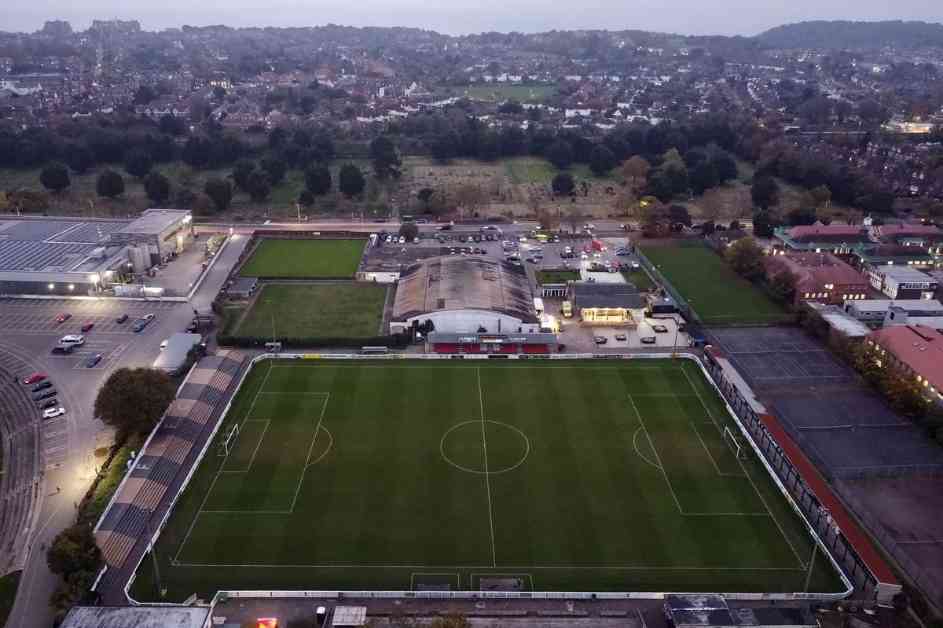Invicta is gearing up for an exciting match against Dover Athletic at the Alcaline Stadium, and fans are eagerly anticipating a thrilling Bonfire Night Derby. The team news reveals that Dean Rance will be back in action for Invicta, while Chris Sessegnon is making progress in his recovery from a dislocated shoulder. However, Matthias Fanimo and Ian Gayle are still sidelined due to injuries.
Manager Andy Drury is well aware of the intense rivalry between the two clubs, especially after their previous encounter in August. He emphasizes the importance of maintaining composure and discipline in such high-stakes matches. Dover, currently sitting at the top of the Premier Division table, have been in fine form recently, winning five out of their last six games.
For those unable to attend the match in person, live updates will be available on social media and football websites. The match promises to draw a large crowd, with tickets priced at £12 for adults, £9 for concessions, and free entry for children under 13.
In addition to the exciting on-field action, fans can enjoy a variety of food and drink options at the stadium. The Dugout Sports Bar will be open for business, serving both cash and card payments. Food trucks and hot food stalls will also be available for fans to grab a bite to eat before or during the game.
To enhance the matchday experience, four new fanzone bars have been set up around the stadium, offering a selection of beverages including draught beer, Guinness, water, and soft drinks. These bars will only accept card payments, so fans are advised to come prepared.
Overall, the stage is set for a thrilling showdown between Invicta and Dover Athletic, with both teams eager to secure a victory in this highly-anticipated derby. Fans can expect an electric atmosphere at the Alcaline Stadium as the two rivals face off in what promises to be a memorable match.
